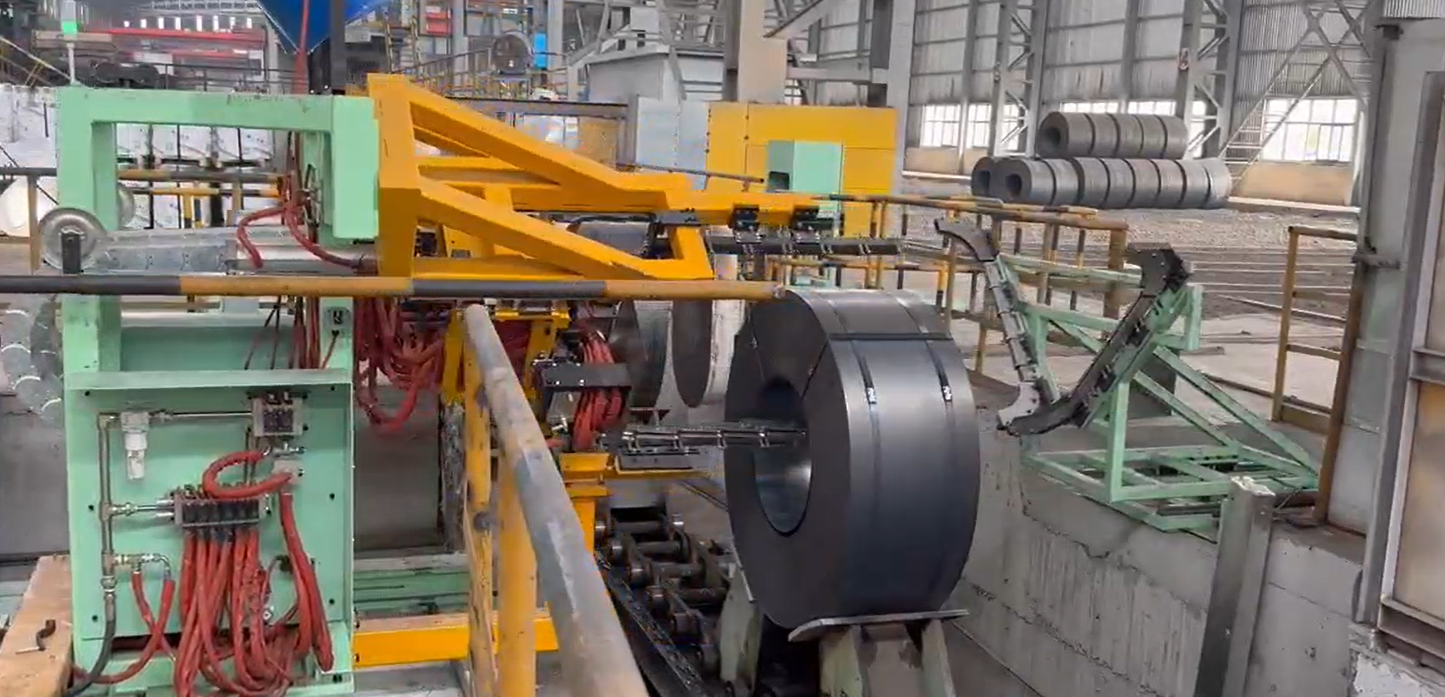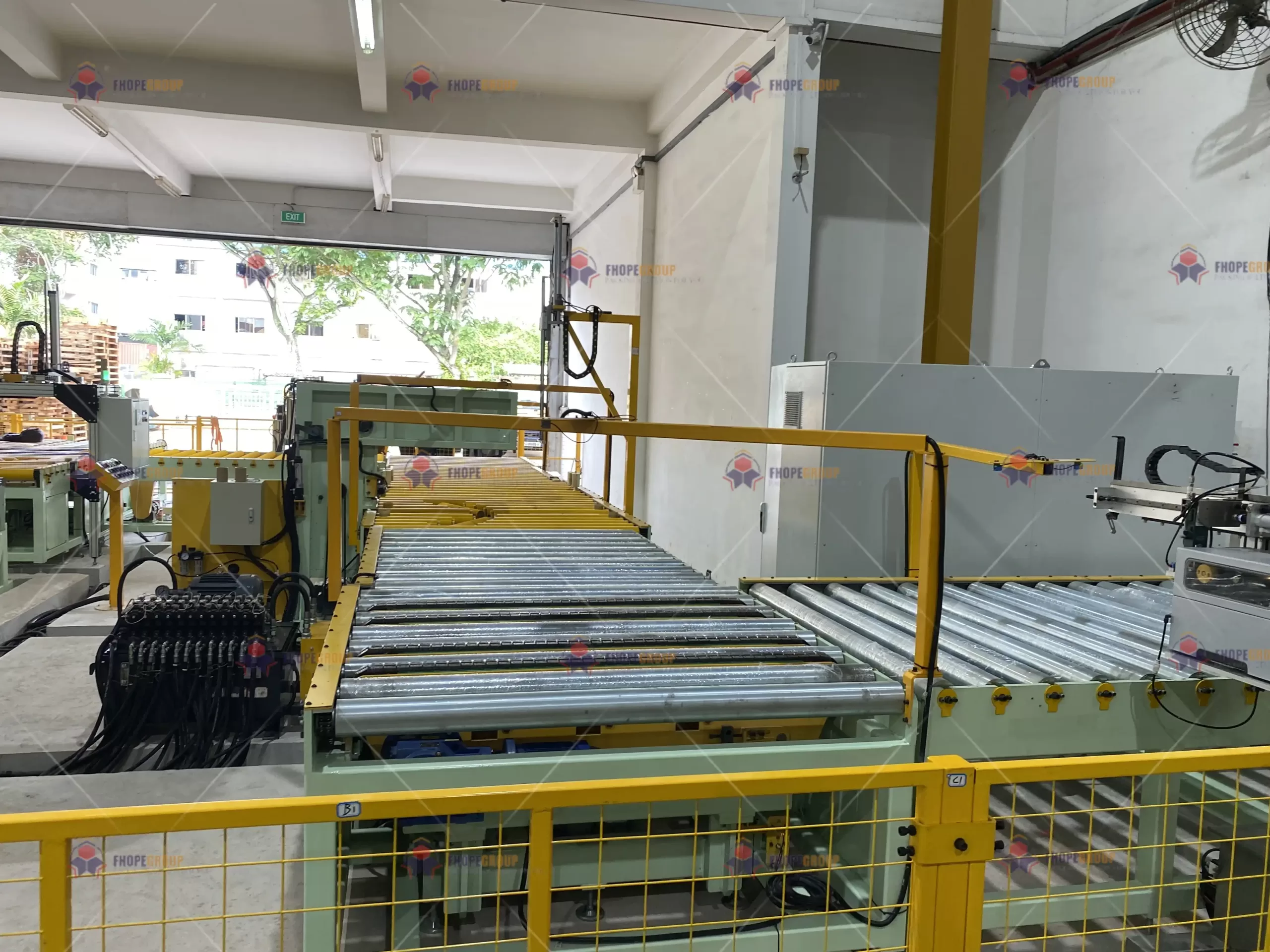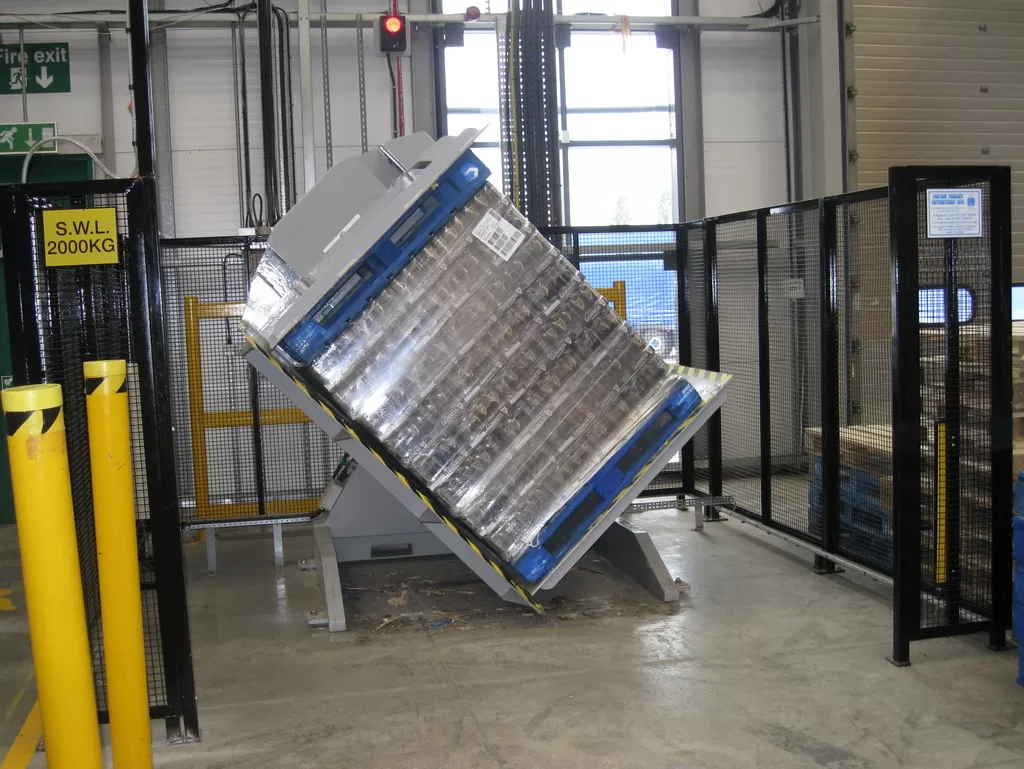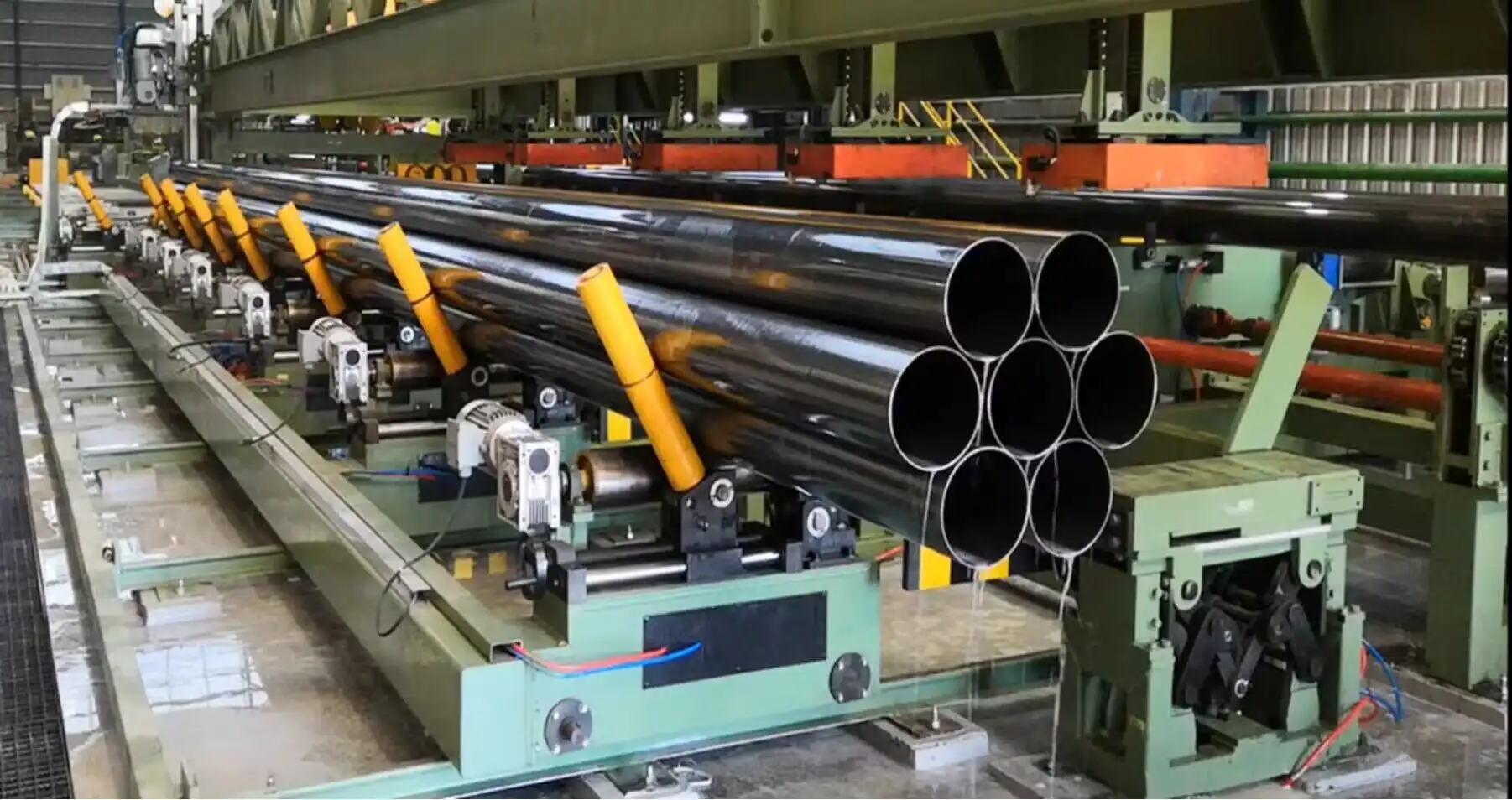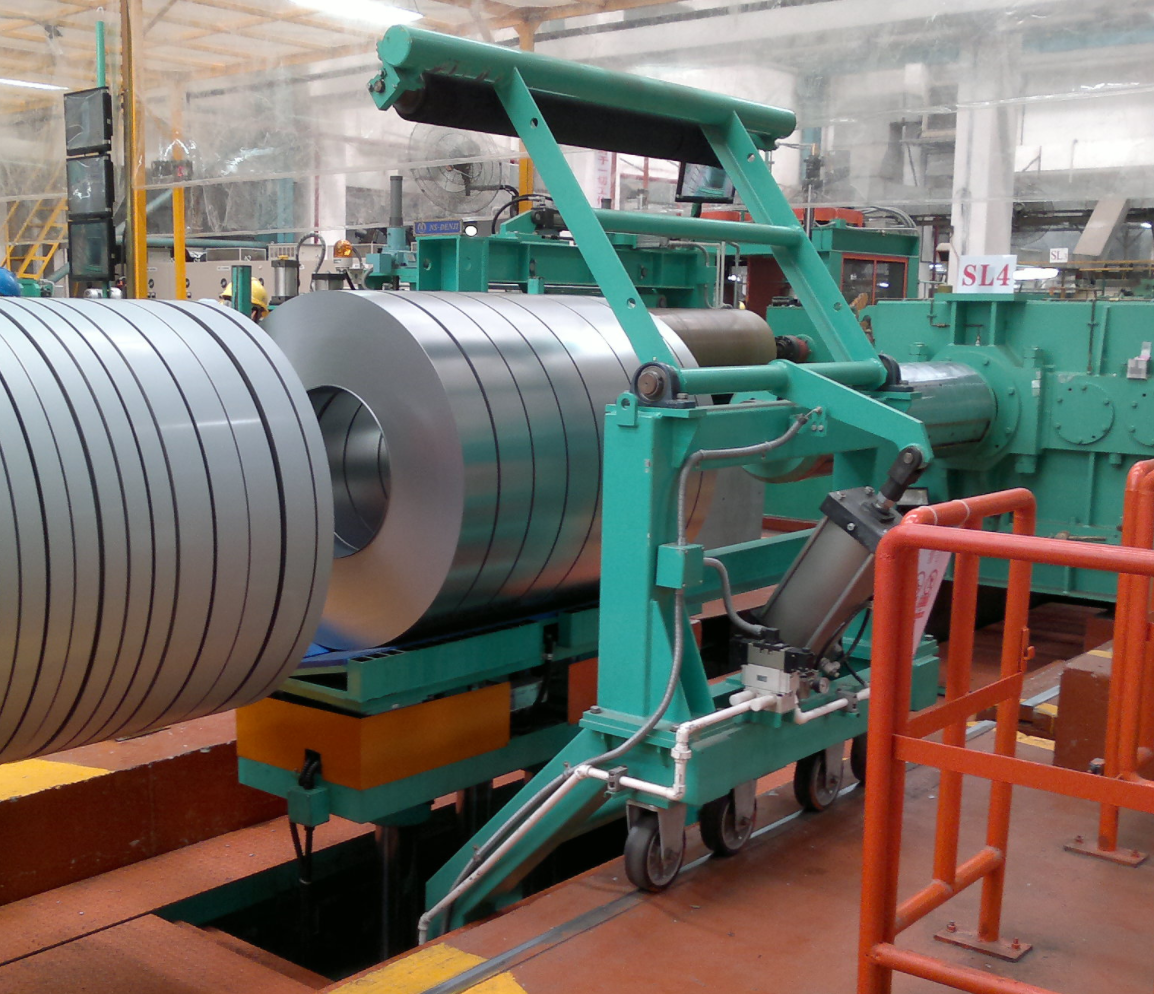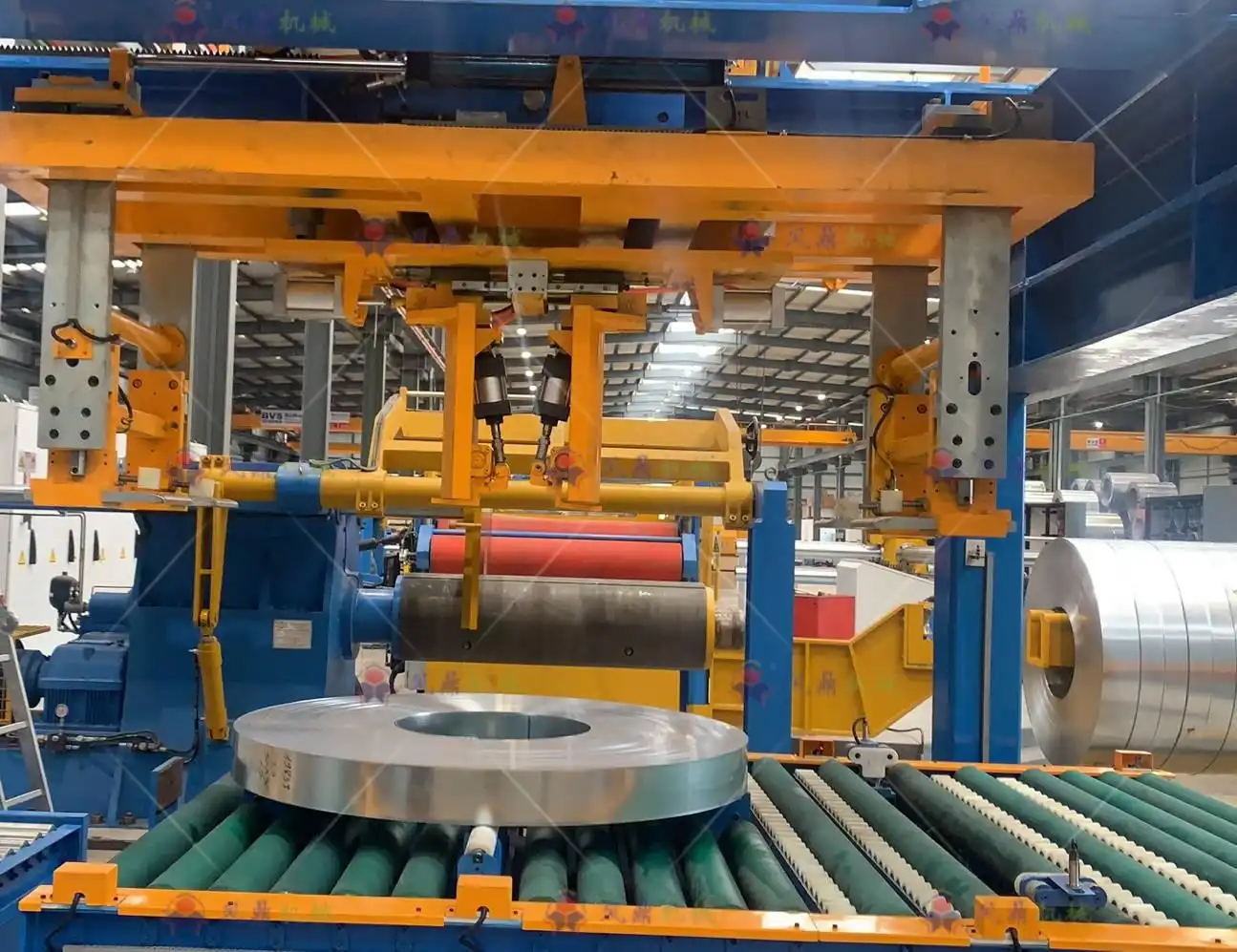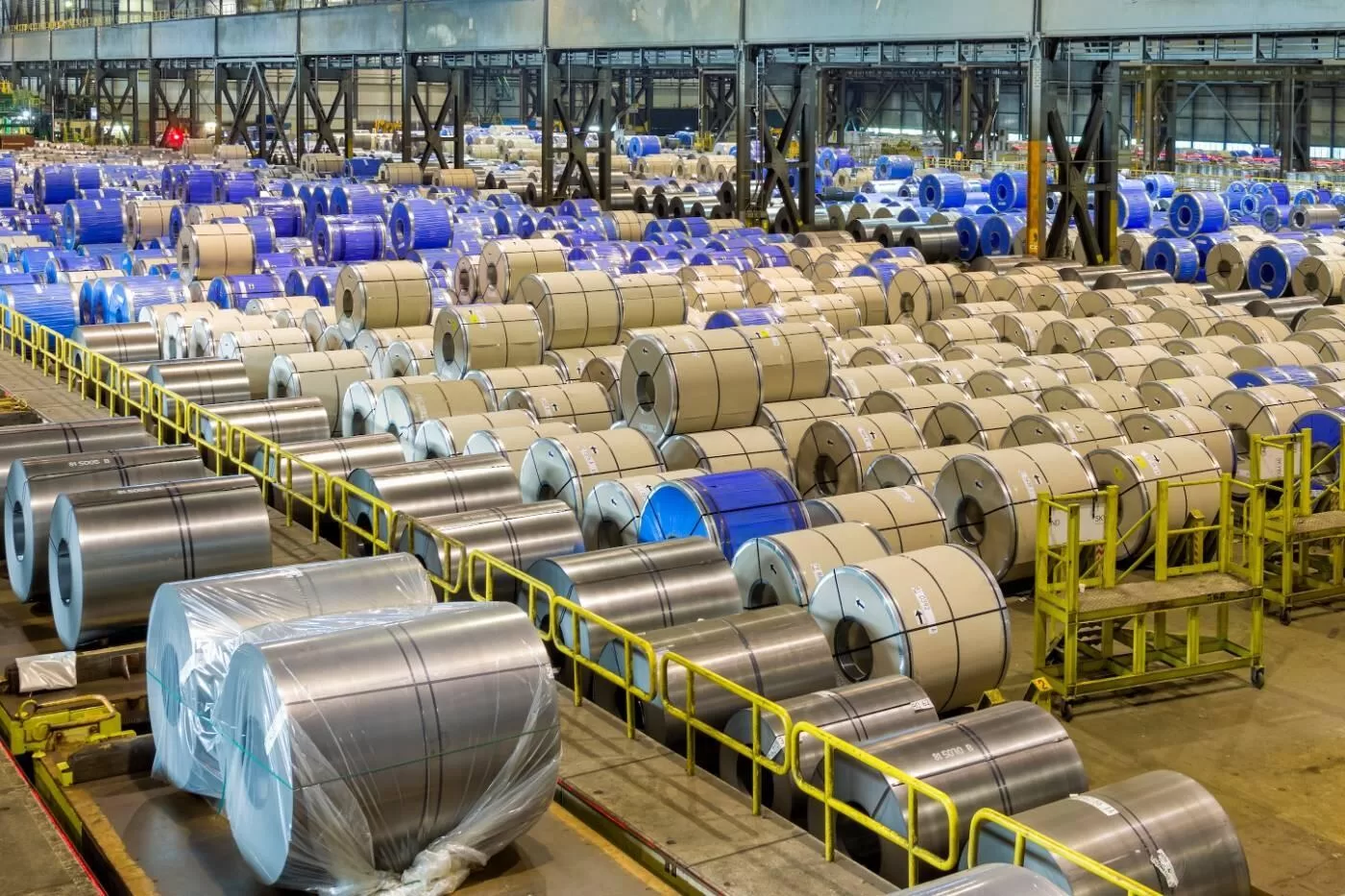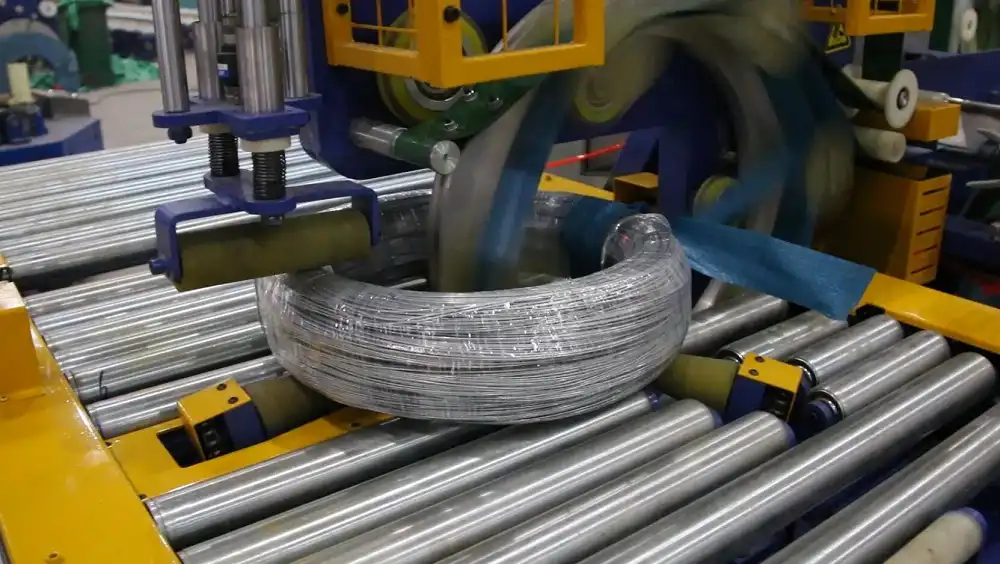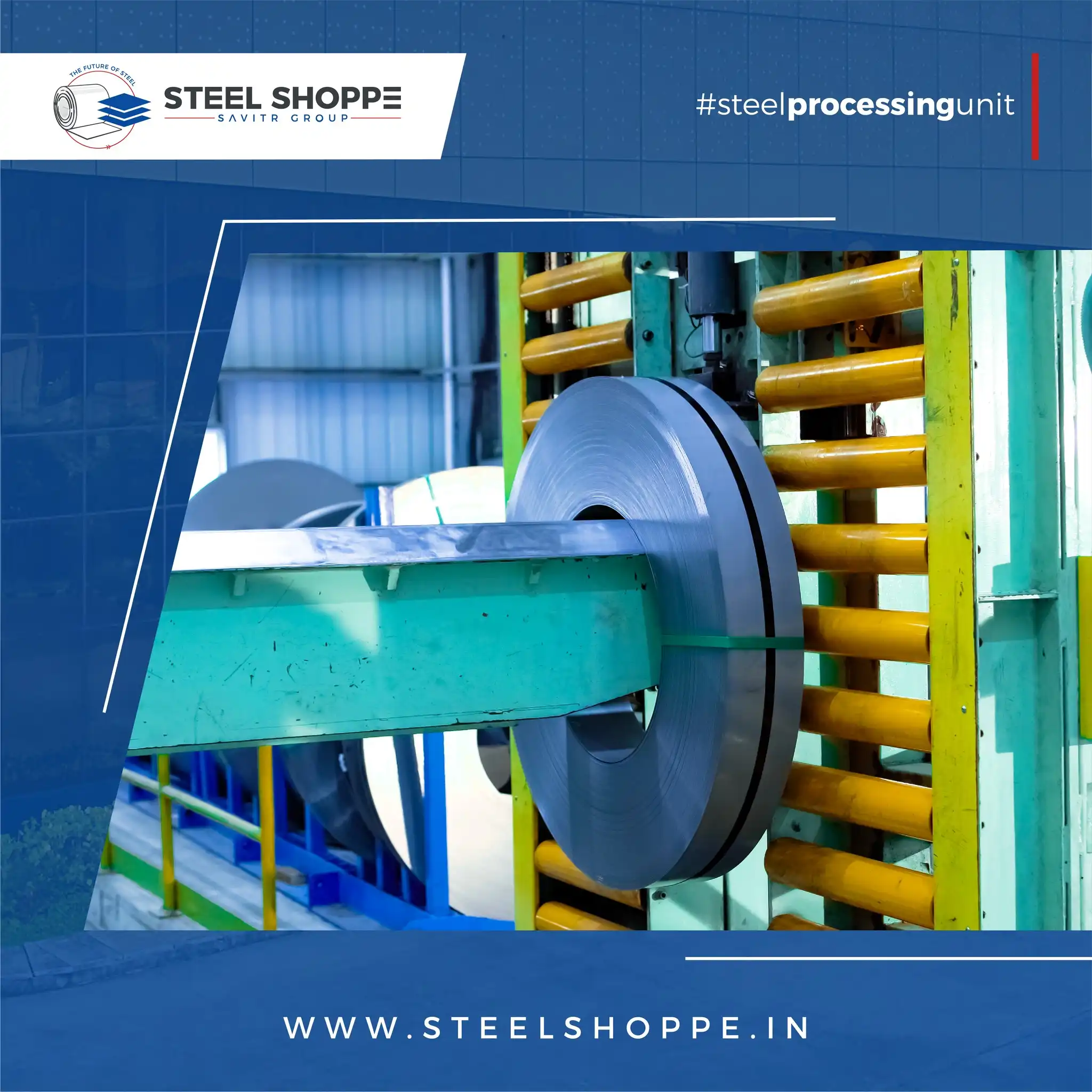Selecting the right coil packing machine brand in 2025 hinges on understanding your operational needs and evaluating manufacturers based on experience, technological capabilities, customization options, client support, and overall cost-effectiveness. Prioritize brands with strong reputations for reliability and innovation to ensure long-term efficiency and minimize downtime in your coil processing operations.
Choosing a coil packing machine is a critical investment for any business involved in the production or processing of coils. Whether you are in steel, aluminum, copper, or other metal industries, the efficiency and reliability of your coil packing line directly impact your productivity, product quality, and bottom line. With the market offering a multitude of brands and models, making an informed decision can seem like a daunting task. This 2025 guide aims to simplify the selection process, providing you with the essential criteria and considerations to choose the best coil packing machine brand for your specific needs.
Understanding Your Coil Packing Needs
Before diving into brand comparisons, it’s crucial to define your specific requirements. What are the key factors driving your need for a coil packing machine? Consider the following:
- Coil Dimensions and Weight: What is the range of coil sizes (diameter, width, height) and weights you need to handle? Ensure the machine you choose can accommodate your largest and smallest coils efficiently.
- Production Volume: What is your required packaging speed? Do you need a high-speed fully automated line for high-volume production, or is a semi-automatic or manual system sufficient for your output?
- Material Compatibility: What types of materials do you need to pack (steel, aluminum, copper, etc.)? What are your packaging material requirements (VCI paper, plastic film, strapping, etc.)? Ensure the machine is compatible with both your coil material and packaging preferences.
- Automation Level: Do you require a fully automated line to minimize labor costs, or is a semi-automatic system a better balance of automation and cost-effectiveness for your operation?
- Space Constraints: What is the available floor space in your facility? Choose a machine and line configuration that fits within your spatial limitations without compromising workflow.
- Budget: Determine your budget for the initial investment, as well as ongoing operating and maintenance costs. Balancing cost with quality and long-term value is crucial.
Key Criteria for Evaluating Coil Packing Machine Brands
Once you have a clear understanding of your needs, you can begin evaluating different coil packing machine brands. Here are the key criteria to consider:
1. Experience and Reputation
A manufacturer’s experience and reputation are strong indicators of reliability and expertise. Brands with a long history in the industry are more likely to have a proven track record of producing quality machines and providing dependable service.
Questions to Ask: - How long has the company been in the coil packing machine business?
- Can they provide testimonials or case studies from satisfied clients, preferably in similar industries to yours?
- What is their market presence and reputation among industry peers?
-
Are they known for innovation and continuous improvement?
Table 1: Importance of Experience and ReputationCriteria Importance Description Questions to Ask Experience High Longevity in the industry often equates to reliability and expertise. How long have they been in business? Do they specialize in coil packing machinery? Reputation High Reflects product quality, customer support, and overall business integrity. Can they provide testimonials or case studies? What do industry peers say about them? 2. Technological Capability and Innovation
In today’s rapidly evolving manufacturing landscape, technological capability is paramount. A leading brand will invest in research and development to integrate the latest technologies into their machines, offering improved efficiency, flexibility, and performance.
Questions to Ask:
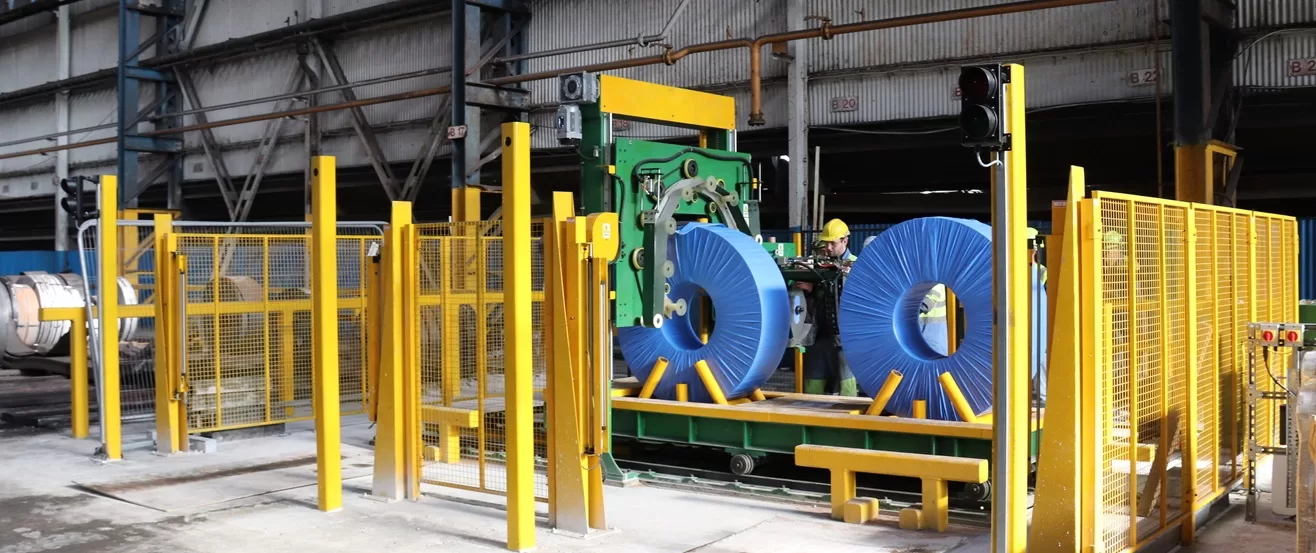
- What advanced technologies do they incorporate into their machines (e.g., AI, IoT, servo technology)?
- Are they committed to ongoing research and development?
- Do they offer features like automated tension control, predictive maintenance, or remote monitoring?
-
Can their machines be integrated with your existing plant management systems?
Table 2: Importance of Technological CapabilityCriteria Importance Description Questions to Ask Technological Capability Moderate to High Ability to integrate modern technologies for better efficiency and flexibility. What technologies do they employ? Are they committed to R&D? Do they offer advanced features? Innovation Moderate Indicates a forward-thinking approach and commitment to industry advancement. Are they introducing new technologies and solutions? Are they adapting to future trends? 3. Customization and Flexibility
Every coil processing operation has unique requirements. A brand that offers customization and flexibility can tailor their machines and packing lines to meet your specific needs, optimizing your production process and addressing unique challenges.
Questions to Ask: - Can they customize solutions to meet your specific coil dimensions, materials, and packaging requirements?
- Do they offer modular designs that allow for future upgrades and expansions?
- Are they willing to work with you to integrate their machines into your existing layout and workflow?
-
Can they provide solutions for specialized applications or unique coil types?
Table 3: Importance of Customization and FlexibilityCriteria Importance Description Questions to Ask Customization High Ability to tailor solutions to meet unique operational and industry needs. Can they tailor solutions for our unique coil sizes and packaging requirements? Flexibility High Adaptability to changing production needs and future requirements. Do they offer modular designs for future upgrades? Can they integrate with existing systems? 4. Client Support and After-Sales Service
Reliable client support and comprehensive after-sales service are crucial for minimizing downtime and ensuring the long-term performance of your coil packing machine. Choose a brand that provides excellent technical support, training, maintenance services, and readily available spare parts.
Questions to Ask: - What does their after-sales support include (training, maintenance, technical assistance)?
- Do they offer on-site installation and training?
- Do they have a responsive technical helpline and readily available spare parts?
- What are their warranty terms and service level agreements?
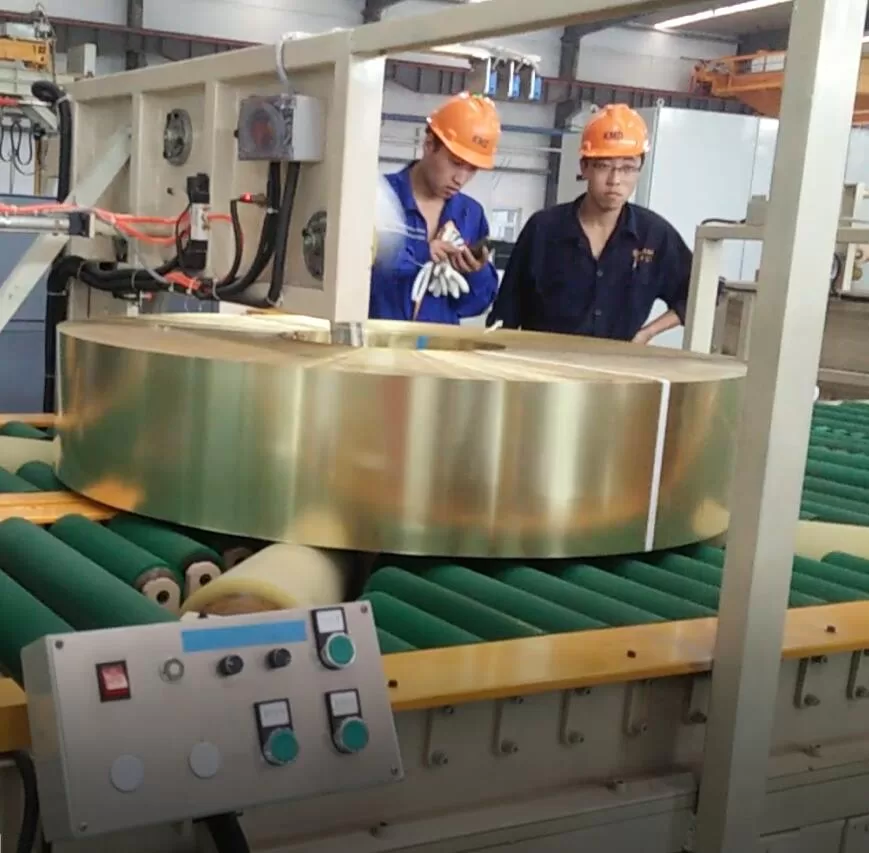
| Table 4: Importance of Client Support and After-Sales Service | Criteria | Importance | Description | Questions to Ask |
|---|---|---|---|---|
| Client Support | High | Strong technical support is crucial for minimizing downtime. | What kind of technical support do they offer? Is there a 24/7 helpline? | |
| After-Sales Service | High | Comprehensive service ensures long-term satisfaction and equipment uptime. | What does their after-sales support include? Is training and maintenance available? |
5. Cost and Total Cost of Ownership (TCO)
While initial purchase price is a factor, it’s essential to consider the total cost of ownership (TCO) over the machine’s lifespan. This includes operating costs (energy consumption, packaging materials), maintenance costs, and potential downtime costs. A seemingly cheaper machine may end up being more expensive in the long run due to higher operating costs or frequent breakdowns.
Questions to Ask:
- What is the initial investment cost?
- What are the estimated operating costs (energy consumption, material usage)?
- What are the expected maintenance costs?
- What is the machine’s lifespan and expected return on investment (ROI)?
-
Do they offer financing or leasing options?
Table 5: Cost ConsiderationsCost Aspect Importance Impact Initial Investment High Upfront costs must align with budget limits. Total Cost of Ownership High Include maintenance, repairs, operating costs in future planning. Operational Efficiency Medium Higher initial costs can sometimes lead to lower long-term operational costs. Return on Investment High Evaluate potential long-term value and savings. Comparing Coil Packing Machine Brands: A 2025 Snapshot
While specific brand recommendations require a detailed understanding of your unique needs, we can provide a general overview of some notable types of brands in the coil packing machine market in 2025, based on the provided material and industry trends:
Brand Categories and Examples (Illustrative): - AI-Driven Automation Leaders: These brands are at the forefront of integrating Artificial Intelligence (AI) into their coil packing machines. They focus on advanced features like AI-powered quality control, predictive maintenance, and optimized packaging processes. Example: FHOPEPACK (mentioned as "Best for AI-driven automation"). These brands typically represent the premium segment ($$$).
- Energy-Efficient and Sustainable Solutions: With increasing emphasis on sustainability, brands focusing on energy efficiency are gaining traction. They offer machines designed to minimize energy consumption and support eco-friendly packaging materials. Example: Schneider Electric (mentioned as "Energy-efficient models"). These brands often fall into the mid-range to premium segment ($$).
- Budget-Friendly and Reliable Options: For businesses with tighter budgets or smaller-scale operations, brands offering reliable and cost-effective manual or semi-automatic machines are valuable. Example: JinQiang Precision (mentioned as "Budget-friendly manual machines"). These brands are typically in the entry-level to mid-range segment ($).
- Robotic Integration Specialists: Brands specializing in robotic integration offer highly automated and flexible coil packing solutions, often incorporating collaborative robots (cobots) for enhanced efficiency and safety. Example: KUKA (mentioned as "Robotic integration specialists"). These are generally in the premium segment ($$$) due to the complexity of robotic systems.
- High-Speed and Compact Designs: Some brands focus on developing high-speed machines with compact footprints, ideal for maximizing throughput in limited space environments. Example: Mitsubishi (mentioned as "High-speed compact designs"). These brands are often in the mid-range to premium segment ($$).
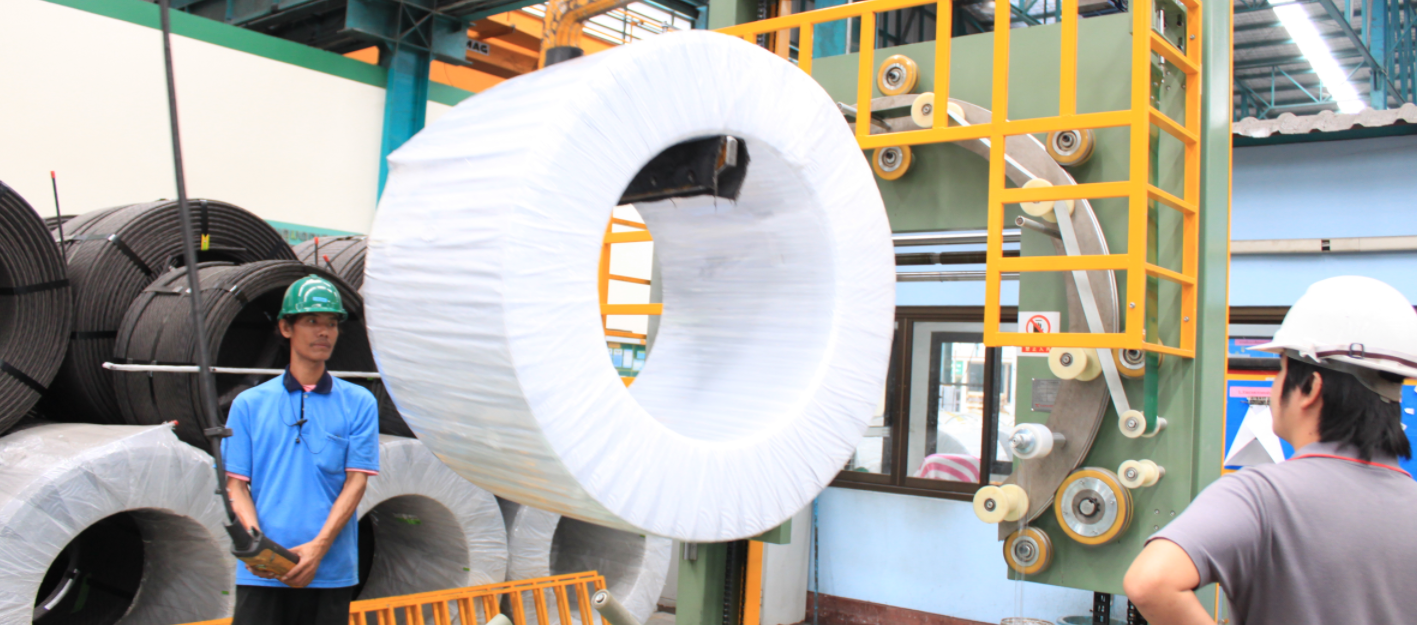
| Table 6: Illustrative Brand Comparison (Based on Brand Types) | Brand Type | Focus | Automation Level | Price Range | Key Strengths | Potential Considerations | Example (Illustrative) |
|---|---|---|---|---|---|---|---|
| AI-Driven Automation | Advanced AI, Quality Control, Predictive Maintenance | Fully Automatic | $$$ | Cutting-edge technology, high efficiency, reduced waste | Higher initial cost, complexity | FHOPEPACK (Illustrative) | |
| Energy-Efficient & Sustainable | Energy Savings, Eco-friendly Materials | Semi-Auto to Fully Auto | $$ – $$$ | Reduced operating costs, environmental responsibility | May require investment in newer technologies | Schneider Electric (Illustrative) | |
| Budget-Friendly & Reliable | Cost-Effectiveness, Basic Automation | Manual to Semi-Auto | $ – $$ | Lower initial cost, reliable operation, suitable for smaller scale | May have lower throughput, less advanced features | JinQiang Precision (Illustrative) | |
| Robotic Integration | High Automation, Flexibility, Cobots | Fully Automatic | $$$ | High flexibility, enhanced safety, adaptable to complex tasks | Higher complexity, potentially higher maintenance costs | KUKA (Illustrative) | |
| High-Speed & Compact | Speed, Throughput, Space Optimization | Fully Automatic | $$ – $$$ | High production rates, space-saving designs | May require precise integration, potentially higher speed related wear | Mitsubishi (Illustrative) |
Note: This table is for illustrative purposes and based on limited information in the source material. Specific brand offerings and positioning may vary. Conduct thorough research and direct comparisons based on your needs.
Automation Levels and Machine Types
Coil packing machines come in various levels of automation, each suited for different production volumes and budget considerations:
- Manual Coil Wrapping Machines: These are the most basic and cost-effective option, requiring significant manual labor. They are suitable for very low-volume production or small workshops.
- Semi-Automatic Coil Wrapping Machines: These machines automate some parts of the process, such as wrapping and tension control, while still requiring manual loading and unloading of coils. They offer a balance of automation and cost-effectiveness for mid-scale plants.
-
Fully Automatic Coil Packing Lines: These systems automate the entire coil packing process, from coil feeding to wrapping, strapping, and discharge. They are designed for high-volume factories seeking maximum efficiency and minimal labor costs.
Table 7: Automation Level ComparisonFeature Manual Coil Wrapping Machine Semi-Automatic Coil Wrapping Machine Fully Automatic Coil Packing Line Price $5,000–$15,000 $20,000–$50,000 $60,000–$200,000 Output 10–15 coils/hour 20–35 coils/hour 40–80 coils/hour Labor Needs 2–3 operators 1 operator Unmanned Best For Small workshops Mid-scale plants High-volume factories Case Studies and Industry Applications
Real-world examples can provide valuable insights into the benefits of using coil packing machines and the impact of choosing the right brand and automation level.
- Case Study 1: Solar Panel Manufacturer (Canada): A Canadian solar panel producer implemented a fully automatic coil packing line (KUKA RoboCoil 3000) and achieved a 40% reduction in downtime and a 28% increase in output consistency by automating their coil wrapping process. This demonstrates the benefits of full automation for high-precision industries.
- Case Study 2: Automotive Wiring Harness Supplier (Michigan): An automotive wiring harness supplier in Michigan adopted a semi-automatic coil wrapping machine (Schneider Electric FlexiWrap 7.5) and reduced labor costs by 65%, saving $18,000 per month on payroll. This highlights the cost savings achievable with even semi-automation in labor-intensive industries.
These case studies illustrate the tangible benefits of investing in coil packing machinery, with ROI often achievable within a relatively short timeframe.Future Trends and Innovations
The coil packing machine industry is continuously evolving, driven by advancements in technology and changing industry demands. Key future trends to consider include:

- AI-Powered Quality Control: AI-driven systems are being integrated to enhance quality control, reduce material waste, and optimize packaging processes. ABB’s "SmartWrap" system, mentioned in the source material, exemplifies this trend, reducing material waste by up to 90% through machine learning.
- IoT-Driven Predictive Maintenance: The Internet of Things (IoT) enables remote monitoring and predictive maintenance, minimizing downtime and optimizing maintenance schedules. This can lead to significant cost savings, estimated at around $23,000 per year per machine according to McKinsey analysis.
- Sustainable Material Compatibility: There is a growing focus on sustainability, driving demand for machines compatible with eco-friendly packaging materials, such as biodegradable insulation films (PLA-based materials).
Choosing a brand that embraces these future trends will ensure your investment remains relevant and competitive in the long run.Purchasing Checklist and Key Questions for Brands
To streamline your selection process, use the following checklist and key questions when evaluating different coil packing machine brands:
Purchasing Checklist:- Production Volume Needs: Calculate your required hourly coil output, including buffer for demand surges.
- Coil Dimensions and Weight Compatibility: Ensure the machine handles your range of coil sizes and weights.
- Material Compatibility: Verify compatibility with your coil and packaging materials.
- Automation Level Assessment: Determine the appropriate level of automation for your needs and budget.
- Energy Consumption: Compare kW/hr ratings of different machines to assess operating costs.
- After-Sales Support: Confirm availability of on-site training, 24/7 technical helpline, and warranty terms.
- Customization Options: Explore modular tooling and customization for future upgrades.
- Floor Space Requirements: Ensure the machine fits your available space.
- Safety Features: Verify compliance with industry safety standards and ergonomic design.
- Total Cost of Ownership (TCO) Analysis: Evaluate long-term costs beyond initial purchase price.
Key Questions to Ask Brands:
- Can you provide detailed specifications and performance data for your machines?
- Do you offer on-site demonstrations or factory visits?
- What is the lead time for machine delivery and installation?
- Can you provide a detailed breakdown of costs, including initial investment, operating expenses, and maintenance?
- What are your warranty terms and service level agreements?
- Can you provide customer references in similar industries?
Conclusion: Making an Informed Choice for Long-Term Success
Choosing the right coil packing machine brand is a strategic decision that will significantly impact your coil processing operations for years to come. By thoroughly evaluating your needs, considering the key criteria outlined in this guide, and carefully comparing different brands, you can make an informed choice that optimizes your efficiency, reduces costs, and ensures the long-term success of your business in the competitive metal processing industry. Remember to prioritize brands with a strong reputation for reliability, innovation, and customer support, and always consider the total cost of ownership beyond the initial purchase price. Investing in the right coil packing machine is an investment in the future of your operations.
